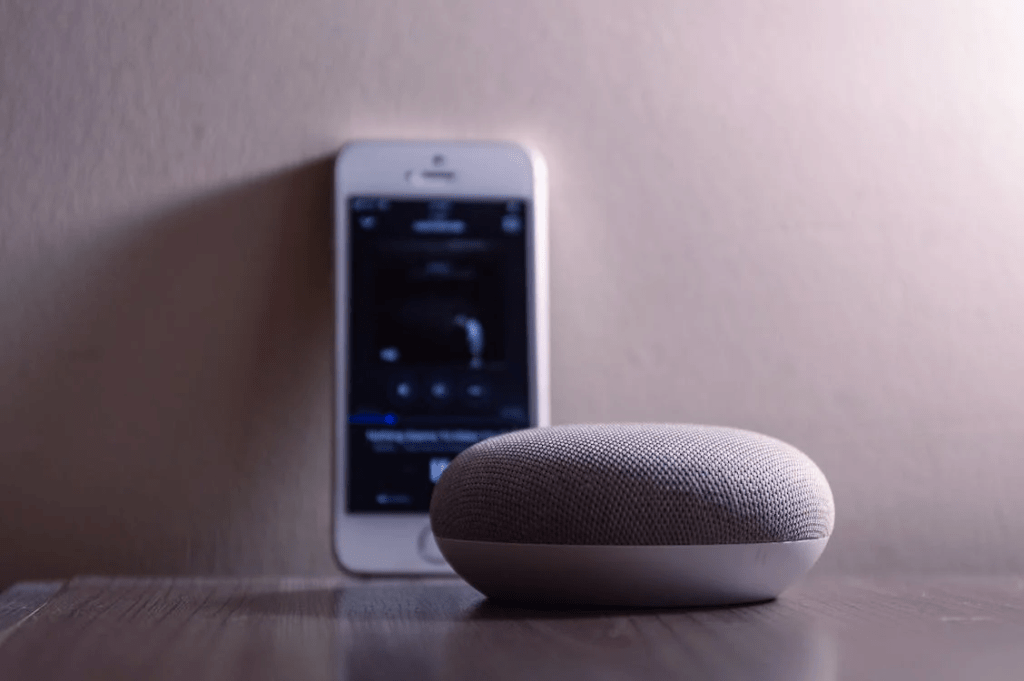The mid-2010s saw rapid development in voice recognition technology. What previously seemed like a futuristic concept from science fiction books and movies became a reality.
Today, voice recognition technology has become commercialized. The world’s most popular smartphone ecosystems, Android and iOS, feature their unique voice assistants. Microsoft also eventually joined the party by launching its voice assistant titled Cortana. Amazon finally rounded out the market with Alexa.
Research shows the global voice assistant application market was worth approximately $2.58 billion in 2021 and is projected to grow to $3.42 billion in 2022 at a compound annual growth rate of 32.4 percent. Experts predict the market will continue growing at a similarly staggering growth rate until 2026, reaching over $10 billion.
The advancement of voice recognition technology and the development of voice assistants have had far-reaching effects on numerous industries, and the digital marketing sector is no different.
Voice assistants aren’t only restricted to phones. Alexa, for instance, is supported by smart speakers, and more people are buying smart speakers than ever before. Research shows that approximately one in three American consumers own a smart speaker. While Amazon’s smart speakers dominate the market, Google and Apple’s smart speakers also have a substantial market share.
The prevalence of these smart speakers and voice assistants has implications for the digital marketing industry. Some of these effects are already visible.
The biggest impact voice assistants and voice recognition technology have offered in the digital marketing field is on online searches. People would previously type their searches, but voice assistants have allowed them to use voice commands to conduct online searches instead, saving time. Research shows that 71 percent of users with smart devices prefer to use voice search instead of typing.
As voice search becomes more popular, the number of people using it will also increase. It’ll undoubtedly continue to affect the best SEO practices as it has for the past few years. Voice search is growing like wildfire because developers and search engines promote it. Apple’s Siri is only a tap away on iOS devices. Similarly, Google’s search bar includes a microphone icon that lets users use the voice assistant to search online.
Businesses spend thousands of dollars annually optimizing their websites to rank well on search engine pages. They want to ensure that the next time a user searches for a product or service online, the voice assistant shares their website with the user.
This development means businesses must optimize their websites for voice searches. It requires crafting a well-thought-out voice search strategy. Since voice search is still in its initial stages, businesses are unsure how to proceed, and that’s where digital marketing agencies lend their experience to help them adjust to this shift.
If your agency offers SEO services, you’ll want to ensure it includes a practical voice search strategy. Otherwise, your clients will miss out on potential traffic and leads from voice search users.
SEO is one of the cornerstones of any effective digital marketing strategy. If your agency doesn’t offer SEO services, consider partnering with a white label SEO agency like Rocket Driver to help clients achieve their marketing objectives. Their white label SEO services will help you tailor an SEO strategy for voice searches.

Understanding Voice Search Users
Understanding voice search users is important before tailoring your client’s SEO strategy for voice searches. People use voice searches differently based on the device used to conduct these searches. For instance, people using smart speakers at home often use voice search for random trivia or to gain information about a product, service, or brand they might have seen while watching TV. Meanwhile, smartphone users performing voice searches are looking for quick answers to pertinent questions. For instance, a smartphone user might be going out to dinner with a friend, and they’ll perform a voice search to find restaurants in their neighborhood.
Understanding voice search users and their search intent are crucial. It’ll determine how you tailor your SEO strategy for voice search.
Mobile optimization is crucial
Statistics show approximately 20 percent of mobile queries are through voice search. Optimizing your client’s website for mobile devices has always been crucial for SEO efforts, but voice searches make it even more crucial.
If your client’s website isn’t well-optimized for mobile devices, it won’t rank well in the SERPs. As a result, it also won’t appear for voice search queries.
Mobile-friendly websites must feature a responsive design and be easily navigable. Short page loading times are also vital.
If your agency doesn’t have in-house web designers who can revamp your client’s website to make it more mobile-friendly, consider getting white label web design services from Rocket Driver, a reputable white label web design agency.
Increase domain authority
Voice searches generally pick the top search result for queries. Voice assistants sometimes provide a few options and allow users to explore the SERPs but rarely cover all ten results on the first page. Therefore, ranking on the first page of Google’s search results is no longer enough. You’ll want to ensure your client’s website is the top-ranked results for specific keywords.
Becoming the top-ranked result is challenging because Google wants websites with extremely high domain authority to be the first result. There’s no shortcut for helping your client become the top result except doubling down on your SEO efforts. Your agency must focus on getting your client backlinks from relevant, high-domain authority websites. You’ll also want to eliminate any technical issues on the website that might affect user experience or your client’s search engine rankings.
Use Schema markup
Google is beta-testing a Schema for voice search SEO. While Schema doesn’t currently affect voice search queries, things will likely change once Google’s speakable Schema markup is released.
Most marketers believe using a Schema markup will help with voice search queries because it allows search engines to understand the purpose of each element on a webpage. They argue that it’ll help search engines decide what web page elements are relevant to users’ voice search questions.
Utilize videos
While text-based answers are an excellent way to address users’ queries, an informative video goes the extra length to answer their questions. Videos are essential for SEO efforts because video carousels show them on the first page of search results. But they can also help with voice searches.
Google’s algorithm already shows relevant videos and isolates the most relevant part of the video to the user’s search query. Including long-tail phrases in video titles and keywords in the video description and transcript can make these videos more appropriate for voice search queries.
Have a Google Business Profile
Voice search users often look for local businesses near them. There is a strong correlation between local SEO and voice searches because one prominent use of voice search is during driving. Therefore, you’ll want to ensure that you claim a Google Business Profile for your client as part of their SEO strategy.
A Google Business Profile is essential because it provides Google with information about your client’s business. The search engine will display the provided information in search results, helping your client get more visibility, especially for voice searches.
Focus on conversational keywords
Keywords have always been essential for SEO efforts. Trends also affect these keywords, as evident by local and long-tail keywords becoming more important as Google’s algorithm has become perceptive of users’ search intent. While localized and long-tail keywords serve their purpose, they’re not enough for voice searches.
Your agency will have to research conversational keywords for voice searches. People speak full phrases and questions when asking voice assistants to search online because they don’t have to type the words on their keyboards.
For instance, let’s assume a user searched for a fast-food joint near them. If they were typing their search query into a mobile browser, they would generally type “fast-food places near me.”
However, their search query would differ when speaking to a voice assistant. An iOS user would likely ask, “Siri, which fast-food places are nearby?”
Most voice search queries begin with the words who, what, where, when, why, and how. You’ll want to find the ideal conversational keywords for your client’s website when optimizing it for voice searches.
Browsing forums and websites like Quora and Reddit is an excellent way to find conversational keywords that might suit your client’s brand.
Build an FAQ section
An FAQ page helps with SEO efforts because it allows you to create content that answers users’ questions, and search engines like Google and Bing highly value unique content that addresses users’ needs.
Questions and answers are also the essence of voice search. Most voice search queries are people seeking answers to their questions because that’s the foundation of conversational language, and an FAQ page addresses that appropriately. It’s also an excellent way to incorporate conversational keywords into your client’s website.
Ensure that the FAQ section on your client’s website has short answers because most voice search answers are brief.

Tailor Your Clients’ SEO Strategies for Voice Searches with Rocket Driver
If you’re searching for white label marketing solutions, check out Rocket Driver. The industry leader offers several services to agencies, including White Label SEO, White Label Marketing, White Label Reputation Management, White Label Social Media, White Label SMS Marketing, White Label Content Marketing, and White Label Web Design.
Check out their website, www.rocketdriver.com/. You can also contact Rocket Driver to kickstart a white label partnership today.
Book a demo now with Tom Lombardi, one of the founding partners, who will give you a 45-minute, one-on-one tour of the Rocket Driver Partnership to show you how incredible they are!


